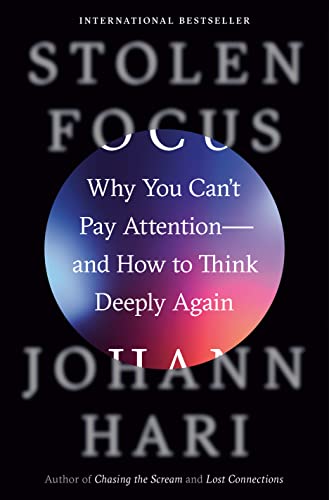Losing Your Cognitive Patience?
This is another follow-up to the comments I received from our newsletter, MindPrep 196 – You Tell Me. As mentioned last time I received a few responses to ten “notes in the margin” I listed from books on my shelf.
In response to #1 (questions are the engine of intellect) Mary wondered how “the latest tech is impacting how we think.”
The quick answer is that it’s damaging our ability to think.
Thinking – short and sweet
Thinking is not a “thing;” it’s a set of processes that we use to build understanding, solve problems, make decisions, and generate new ideas. This set of processes includes perception, memory, attention, and imagination. These processes are influenced by emotions, biases, and prior knowledge.
What’s the big deal with technology? It’s just a tool, right?
True. Technology is the embodiment of ideas or knowledge to help us produce more outputs from inputs. (Or so the economist says.) However, all tools have unintended consequences associated with their use.
Need an example?
My brother-in-law Tom has been a carpenter for a long, long time. When he started, his basic tools were a saw and hammer. And then he found this amazing piece of technology – a SkilSaw. It certainly increased his productivity, but now he needs hearing aids. SkilSaws are loud when in use.
Technology has unintended consequences.
What about the Internet and other “cognitive technologies?”
Well, we certainly can find facts, and opinions, and lots of information easily. Just “Google it.” Cool – it helps with productivity.
And the new Large Language Models like ChatGPT can (seemingly) answer our questions in minutes. Amazing.
But what about the unintended consequences?
Back to Mary’s question
An early warning can be found in Nicholas Carr’s 2010 book, The Shallows: What the Internet is Doing to Our Brains. His conclusion was that the use of the internet was decreasing our ability to focus, remember information, and think creatively. Was Carr an outlier?
No.

The bestseller, Stolen Focus, by Johann Hari was published in 2022. His message is found in the subtitle of the book – “Why You Can’t Pay Attention – and How to think Deeply Again.”
It’s a wonderful (and disturbing) book and I won’t try to summarize it here. However, his interview with Ann Mangen, a professor of literacy in Norway, deserves repeating.
Reading “a book” is something that’s done in a linear fashion. However, reading a screen is usually done by scanning and skimming. (By the way, the layout on the screen was designed that way.) And after a while we don’t have the patience to read long texts.
And here’s the scary punchline: we are losing our “cognitive patience … (and) the stamina and ability to deal with cognitively challenging texts.”
What does ChatGPT have to say?
I posed the question about the impact of technology to my trusty friend, Chat. It says that technology will affect:
• Attention span
• Memory
• Critical thinking
• Creativity
Bottom line
Use Large Language Models when you need a quick (usually correct) answer. But if you want to keep your mental muscles, read real books. Certainly slower, but better for you.
Next edition of MindPrep
Ken asked about items 8 and 10, four versions of the future and thinking blocks. I’ll dig into these next time.
One more time
I’m working with Elevate.ac and I’ve put an offering on their site focused on building and using Strategic Foresight.
Take a look and let me know if you have any interest or questions for your organization. Here’s the LINK. I’ll tailor the session to your organization.
That’s all for now.
Bill
Never miss out!
Get an email update every time I publish new content. Be the first to know!
